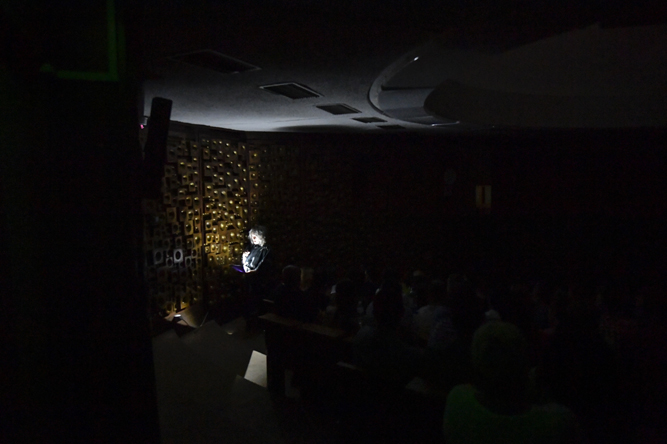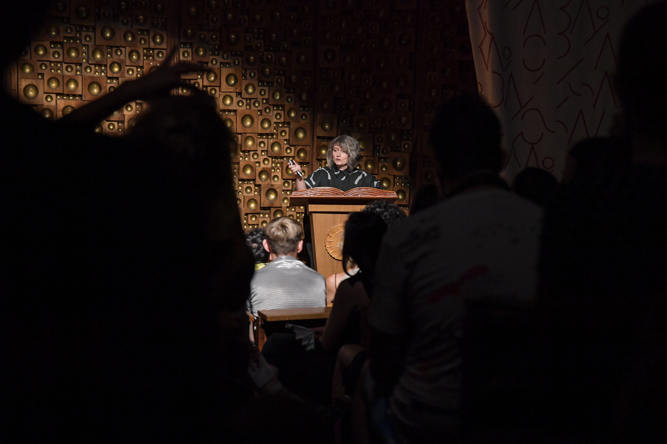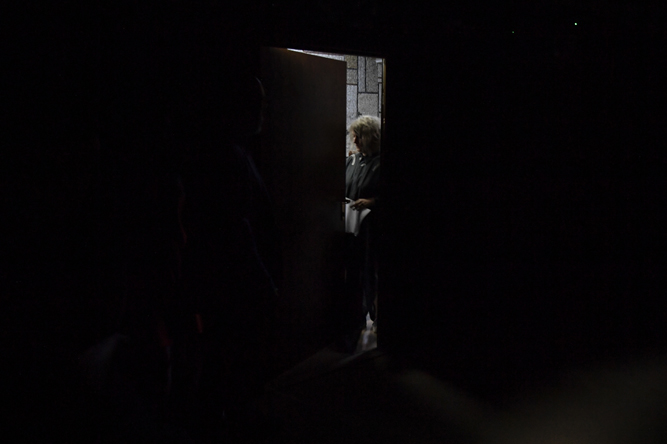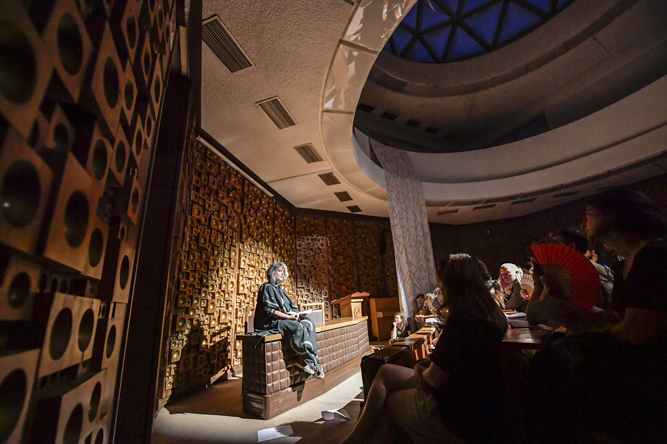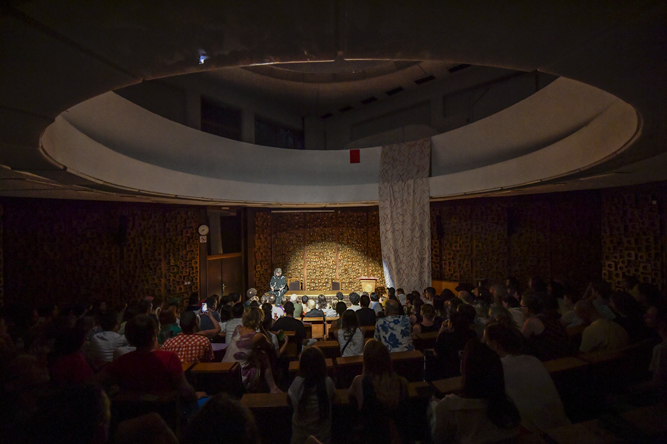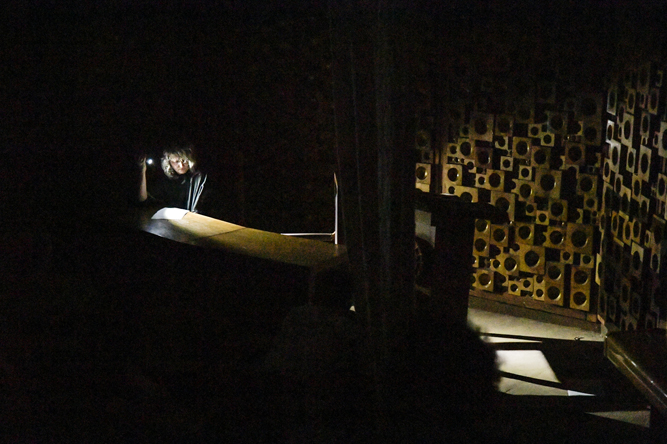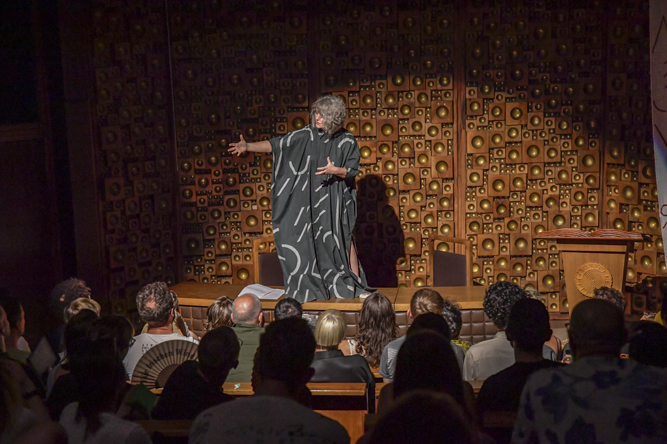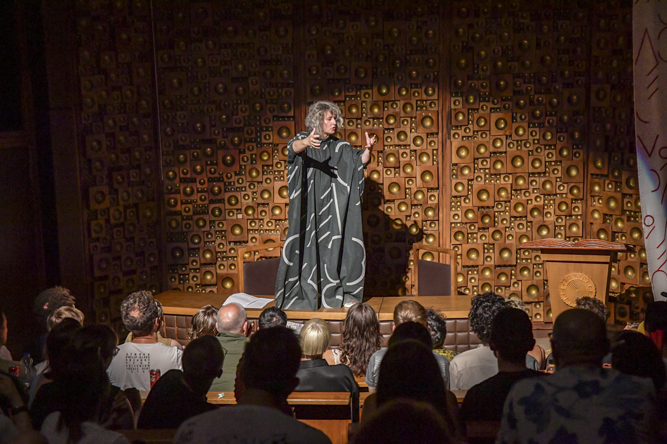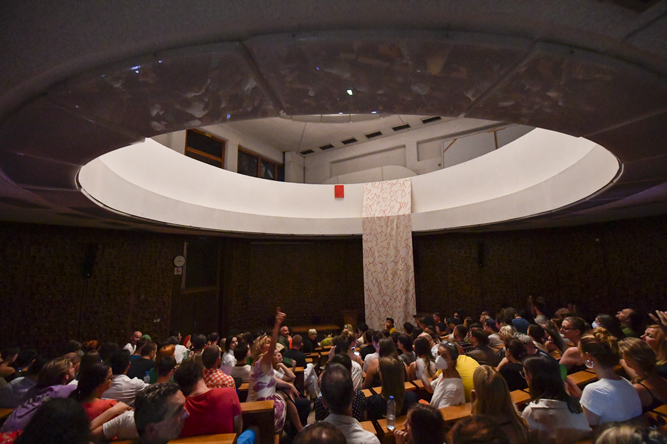“Document Missing: Performance no. 6 (Daughter)”, duration 25 min, National Library, Prishtina, selected by Catherine Nichols, creative moderator for Manifesta 14 Prishtina, 2022, © Hristina Ivanoska. Photo © Manifesta 14 Prishtina / Atdhe Mulla
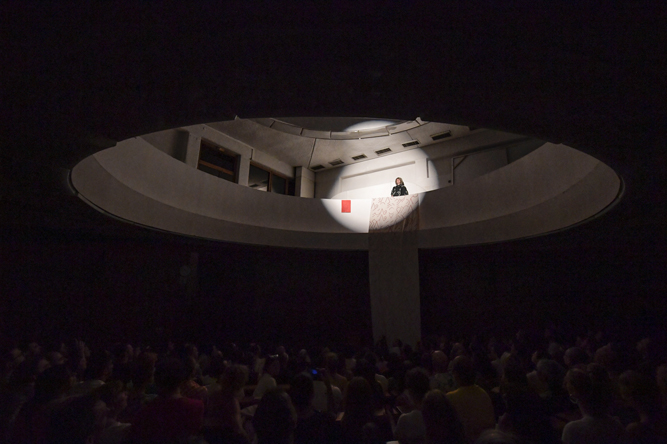
Memories are raw oral material. They are dirty and messy. How does one get to the essence of what creates a memory if we only have the materials that are already processed by the investigator, the historian, the journalist, and the writer? How to dive between the words, and extract the essence?
Starting from a seemingly simple question “Who am I?”, I found my interlocutor in the character of Rosa Plaveva, a revolutionary woman from the early 20th century that lies forgotten in the archives of the past. In this particular performance, the focus is Plaveva’s daughter, Nadezhda Plaveva Stanojevic known as Nada. “Document Missing: Performance no. 6 (Daughter)” is an attempt to tell a story of power, speech, and punishment, and about the injustice, insult, and trauma that has been inflicted on. The text is based on a feuilleton published in the Serbian newspaper “Borba” in 1990 under the title “Destroyed Past and Future” where Nada talks about her personal and political experience between 1949 and 1953, and the betrayal, sentence, and the ultimate expulsion from the Communist Party of Yugoslavia. During this time historically known, as the “INFORMBIRO Period”, Nada was accused to be a Stalinist and was arrested by UDBA – the Yugoslav Secret Police. As a political prisoner, she served her sentence at “Goli Otok”, a notorious political prison and a labor camp, located on a barren, uninhabited island on the coast of Croatia.
Through this enactment, it was important for me to also talk about the physically abused female body and the memory that body creates as a result of the inflicted injuries.
In my text, I also reference Avery Gordon’s book “Ghostly Matters: Haunting and Sociological Imagination” and her text “Some Thoughts on Haunting and Futurity” on the notion of power, punishment, imprisonment, and haunting, as well as Brandon LaBelle’s “Lexicon of the Mouth: Poetics and Politics of Voice and the Oral Imaginary” on the performance of the mouth, construction of the voice and the meaning of the language.
